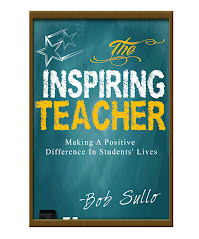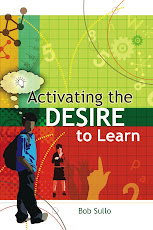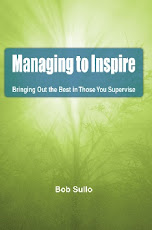What does the following have to do with education? Everything from this episode can be applied to the classroom. Just as Jennifer Livingston knows she is overweight, most failing students are aware of their struggles. It doesn't help to criticize them, even if you believe “it's for their own good.” When you have something you think is important to share with your students -like the curriculum you are trying to deliver- remember that your efforts will be most effective when you create a positive relationship. Otherwise, much of what you say will fall on deaf ears. So here's it is....
A story about an overweight news reporter caught my attention. A viewer sent
news anchor Jennifer Livingston an email berating her for her weight and
suggesting she was a poor role model, particulalarly for young female viewers.
In a moment that gained national attention, Livingston addressed the email on air, appearing on national TV shows like The Today Show and Good Morning America on October 3. She
characterized the email as "bullying."
I'm not
comfortable with that label. It might have been ignorant. It might have been
hurtful. But it minimizes the horrendous problem of bullying when this reporter
puts herself in the same category as an child victimized by a classmate.
Youngsters are often defenseless against the slings and arrows of their peers.
They lack experience, wisdom, self-esteem, and strength. Livingston is skilled,
competent, and like most reporters, has received her share of ignorant emails.
I appreciate her outrage, but there’s a difference between
ignorance and bullying.
It
doesn't matter whether the email writer’s intent was to be a hurtful,
ugly bully or if he was genuinely concerned about Livingston’s health and believed in her
ability to influence others. His email drew a strong rebuke from the anchor who
stated, “The truth is, I’m overweight. You could call me fat. And, yes, even obese on a doctor’s chart.... Do you think I don’t know that?...You don't know
me. You are not a friend of mine. You are not a part of my family.” If the intent of the email
was to hurt, it was reprehensible and inexcusable. If the intent was to be
helpful, it wins the award for "worst attempt to help a person you've
never met."
I had
never heard of Jennifer Livingston until the story broke. My guess is that she
would rather weigh less. While the email writer talks about “choices” the reporter has made, I've
never met a person struggling with weight who identifies their situation as a “choice.” I teach choice theory but
would never say a person “chooses” to be fat. That's as cruel and ill-informed as suggesting there are
students who “choose to fail” or people who choose to be economically disadvantaged. We are responsible for our behaviors
and their consequences, but don't confuse that with conscious choice. Many of
our behaviors, including some that impact weight, health, academic standing,
and personal relationships are made without conscious awareness.
Let's
give the emailer the benefit of the doubt and imagine his intent was positive.
He sees a television news anchor he perceives to be influential and a role
model. He believes her weight is a detriment to her health. He wants to help.
The firestorm his email has created elegantly emphasizes the importance of
relationships, especially when you want to provide information that might be perceived
as painful. If the emailer seriously thought that he could write what he wrote
to a person he never met and expect it would be read as a helpful expression of
love and concern, well, suffice it to say he doesn't understand human behavior
very well.
Because
all of us are doing the best we can to satisfy our needs, we naturally resist
information that might be defined as critical. If I don't know you, if we have
no relationship, it's easy to dismiss your comments - even if they are right!
The only way that I will take in and utilize painful information is when our
relationship is strong enough that your love and concern trumps the painful
content of your message. It goes back to the phrase, “They need to know that you
care before they care what you know.”
***
As always, if you enjoyed this and found it useful, please
send the link to your friends. Thanks.
Bob Sullo
PO Box 1336
Sandwich, MA 02563
For information about books by Bob Sullo and to schedule a
keynote, workshop, or series for your school, agency, or parent group visit www.internalmotivation.net





